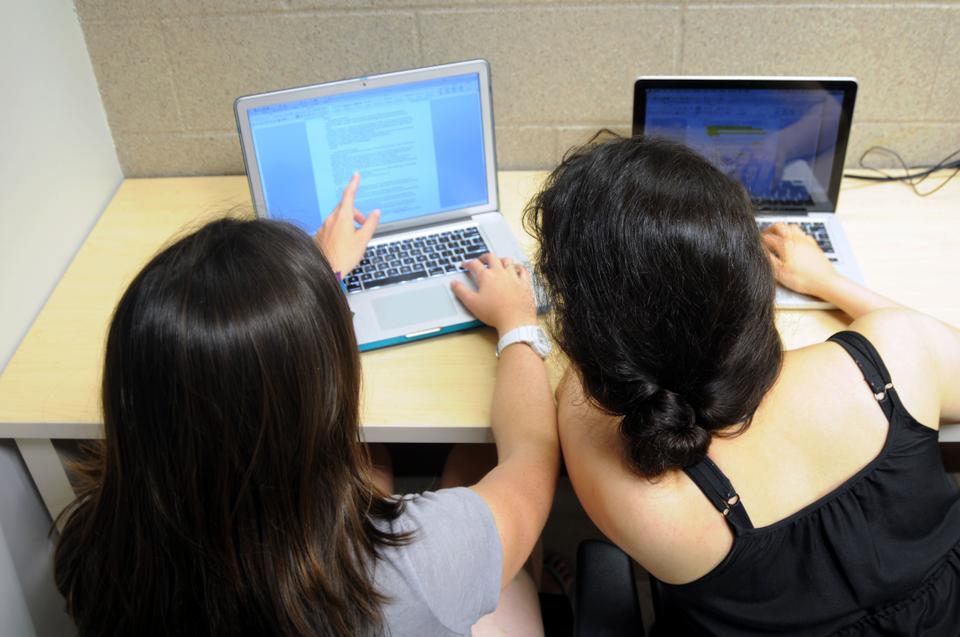
News
HMS Is Facing a Deficit. Under Trump, Some Fear It May Get Worse.

News
Cambridge Police Respond to Three Armed Robberies Over Holiday Weekend

News
What’s Next for Harvard’s Legacy of Slavery Initiative?

News
MassDOT Adds Unpopular Train Layover to Allston I-90 Project in Sudden Reversal

News
Denied Winter Campus Housing, International Students Scramble to Find Alternative Options
Professors Emphasize Collaboration Policies on First Day of Shopping Week

Students muddling through their first day of shopping period encountered a change when several professors chose to highlight collaboration policies while introducing their courses this Tuesday.
Although professors are required to report course policies on academic dishonesty in their syllabi, students said many of them chose to specifically address their rules regarding collaboration in class this semester, a practice they don’t remember from previous years. This change follows an announcement by Harvard administrators last Thursday that the college is investigating roughly 125 students for illicit collaboration with their classmates on an exam in Government 1310: “Introduction to Congress.”
In his class Empirical and Mathematical Reasoning 13: “Analyzing Politics,” Government Professor Kenneth A. Shepsle added a statement in his syllabus that specified while “discussion and the exchange of ideas are essential to doing academic work,” students should make sure to work through problems sets on their own and submit only original work for grading. In a syllabus posted on the course’s iSite earlier this summer, Shepsle had not included a section elaborating specifically on his rules for collaboration.
Several students said they encountered statements like Shepsle’s in class on Tuesday.
In Emma Dench’s heavily shopped class, History 1011: “The World of the Roman Empire,” Dench described in detail her policies on collaboration and addressed the allegations of cheating made last week, according to Maura D. Church ’14.
Dench, a classics and history professor, told students that she would be giving a three-hour final exam rather than a take home exam in order to ensure that all students would be “on the same page,” according to Church.
“It's certainly possible to design appropriate take home exams,” wrote Dench in an email. “But...the traditional, registrar-arranged exams take away a lot of the possible doubt and suspicion.”
History Lecturer Brett Flehinger, who established a newly-created position in the College administration addressing academic integrity on Tuesday, included on his syllabus for History 1434: “American Public Life in the 20th Century” an explicit statement about collaboration, specifying that group study guides were not allowed.
In an email to faculty members on August 30, FAS Dean Michael D. Smith encouraged professors to make sure their policies on collaboration were clearly outlined in syllabi and to discuss these policies with their students in class. Smith also informed faculty that assistance with drafting specific language could be received through the Office of Undergraduate Education.
Smith also encouraged faculty members to discuss the issue of collaboration with each other in order to “foster a culture of honesty and integrity in our classes and learning assessments,” adding that their efforts to do so are “essential to our success.”
According to spokesperson Jeff Neal, the Committee on Academic Integrity is expected to make a set of recommendations to the faculty in order to “reinforce their expectations of academic integrity.”
“While the allegations are limited to one class, we are taking a number of steps to underscore the importance of academic integrity for students even as the Administrative Board’s review continues,” wrote Neal in an email to The Crimson on Tuesday.
“No one really lingered on the point,” said a sophomore about the scandal. “But it was...a common reference point.”
—Staff writer Gina K. Hackett can be reached at ghackett@college.harvard.edu.
Want to keep up with breaking news? Subscribe to our email newsletter.
